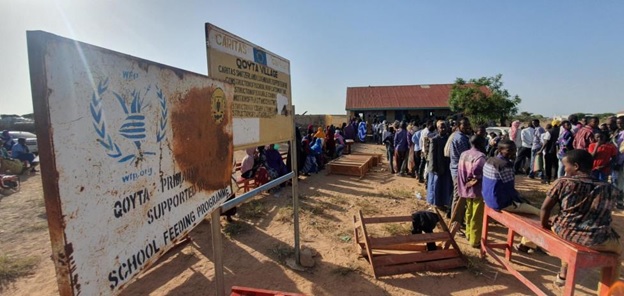By Peter Fabricius; ISS
Somaliland is increasing its push to win international recognition as an independent sovereign state which it has proclaimed for itself – and indeed successfully practiced – for the past 30 years. But will these efforts to attain an ambitious goal pay off?

The chances, unfortunately, seem rather slim. Even though in many ways Somaliland deserves recognition as a separate state from the chaotic and largely violent remainder of Somalia.
On 31 May Somaliland, which lies to the northwest of Somalia, sandwiched between it, Ethiopia, Djibouti and the Gulf of Aden held its second legislative elections. The two opposition parties, the Somaliland National Party (Waddani) and the Justice and Welfare Party (UCID), won 52 seats in the 82-seat legislature. They announced they would form a coalition to oust the ruling party, the Kulmiye Peace, Unity and Development Party.
The results were in many ways perfect for Somaliland’s cause. The elections unfolded peacefully and were deemed free, fair and credible by South Africa’s private Brenthurst Foundation. The foundation sent a team of monitors, including several African opposition leaders, to scrutinise the polls. Somaliland’s democratic credentials aren’t impeccable, but the opposition victory boosted the country’s claim to be worthy of recognition.
Somaliland parted company from Somalia 30 years ago, in 1991, after fighting a very destructive war of independence against the brutal Somali dictator Mohammed Siad Barre. Without the usual observers such as the African Union (AU) and European Union, inviting the Brenthurst Foundation and another monitoring mission of the University College of London was part of Hargeisa’s strategy to win international support.
To date only Taiwan – itself a barely recognised state – has endorsed Somaliland’s status as a sovereign country, and even that is rather tentative. South Africa has for years been one of the targets of Hargeisa’s international campaign for recognition, and it has enjoyed some success. Important interests in South Africa’s ruling tripartite alliance back its cause.
Last November, the South African Communist Party hosted a conference in Johannesburg attended by African National Congress members and the third alliance member, the Congress of South African Trade Unions. Other regional leftist organisations such as the Communist Party of Swaziland, the Zimbabwe Communist Party and the banned People’s United Democratic Movement of Eswatini were also there.
The South African Communist Party appears to have publicly backed Somaliland’s independence, leading a South African fact-finding mission there in December. But South Africa’s government is so far not budging. It would not grant visas to two senior Somaliland officials to attend the Johannesburg conference, nor will it give passports to Somalilanders.
Pretoria has told Somaliland that if it wants recognition, it should start closer to home with the Intergovernmental Authority on Development (IGAD). But IGAD is unlikely to be well disposed, given several of its members’ concerns about Somaliland secession creating a precedent for other restive minorities.
Officially Pretoria isn’t persuaded by the 2011 precedent of South Sudan seceding from Sudan. It believes that South Sudan was always distinct from Sudan – ethnically, culturally and religiously – whereas Somaliland is barely distinguishable from Somalia in these respects.
Some countries further afield are more sympathetic to Somaliland’s cause, notably Britain, the former colonial power. Hargeisa bases its legal case for independence, in the AU court as it were, on the historical fact that it was, before 1960, a British protectorate while Somalia was an Italian colony.
That meant that at independence the two states were separate, although they merged days later. Nevertheless, Somaliland argues that due to that moment of separation, it doesn’t violate the AU position against disturbing national boundaries inherited from the colonial era.
Source: Daily Maverik


